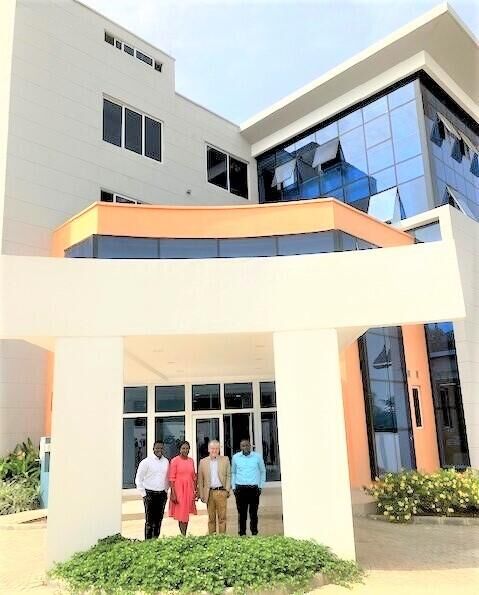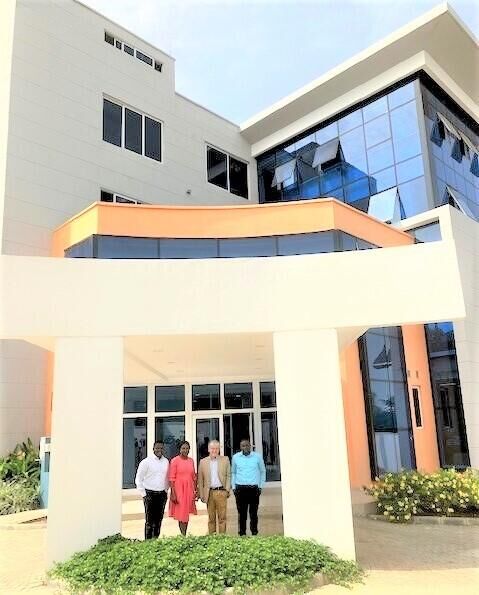

Ghana Employers Association revisited: change and continuity
After a Covid imposed absence of more than 2 years, the country manager dr. Arnout De Koster was able to travel again to Ghana and meet the partners of the Ghana Employers Association. The global impression: a combination of interesting surprises and continuing issues.
The main positive surprise was the new building. The works had started before Covid, and with structural works quasi ready by that time, with some imagination, the end result could be visualised. Nevertheless, seeing the building in its final shape was really a very pleasant surprise (see photo). At the outside, it is totally finished; the inside with nice airy offices is in use, but some works still need to be finished on the upper floors.
Another pleasant surprise was the commitment and the engagement of the Board and especially the Chair. It is interesting to see that the GEA Board also functions with some specialised committees, i.e. the membership and resource mobilisation committee, the economic and finance committee and the legal and industrial relations committee. These committees meet with greater frequency and play a very active role in guiding and supporting the regular GEA staff with ideas and concrete initiatives.
Continuing issues however remain also.
The good news is that, contrary to what was feared, GEA has not suffered fundamentally under the Covid crisis effects: membership is stable and revenue losses- important in 2020- were more or less recovered and the budget prospects are again at a pre Covid level. The key role of GEA in industrial relations (services and policies) remain uncontested.
The other side of the coin is that the issues and challenges which were present pre-Covid remain on the table.
At organisational level, the paying membership remains low for an economy with the size of Ghana and hence also the revenue basis is vulnerable. This implies that the possibility to expand the organisation and its value proposition is limited; the staff shortage remains an issue and affects the capacity for new strategic initiatives.
At the level of outputs, GEA is undoubtedly the leader in industrial relations and social dialogue. The social climate, at least in the private sector, is rather stable, mainly thanks also to the good relations with trade unions. But the challenge to be active in policy influence in other fields than social affairs, and to offer services of interest to companies outside the strict industrial relations field, also remains.
The main question will be how to further boost the organisation. The DECP – GEA workplan 2022 provides for support in membership development, expansion of services especially in social dialogue approach, and also will also support some studies in areas where tripartite consultation is ongoing, and focus on the setting up of an unemployment benefits scheme.
